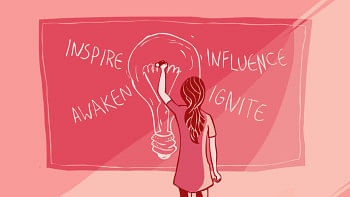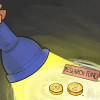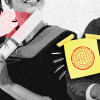Plagiarism: A menace in the academic world

A Dhaka University teacher has been stripped of his degree and demoted to a lower rank as his doctoral dissertation is 98 percent plagiarised. Here's an educated guess: the title and acknowledgements account for the remaining two percent. News of "professorial plagiarism" pops up every once in a while. In such cases, the institutions concerned investigate and punish the perpetrators. In a few instances, the incidents make headlines. When they do, the accused play victim and shift the blame. They either find faults in the "poor citations" and "sloppy oversights" of a co-author, if available, or they blame the "vicious, motivated political coterie" of colleagues who have allegedly been holding grudges against the accused for a host of reasons. The problem lies deeper than that.
A Facebook friend, who completed his PhD in Malaysia and now is teaching at a university in Chattogram, recently posted about his experience of struggling as a graduate student. When he went abroad for his master's degree leading to a PhD, his university refused to offer him a degree-by-research option as his undergraduate syllabi did not have any course on research methodology. He was already teaching at a university in Bangladesh and had the required number of publications to become an assistant professor. When he submitted those papers as his writing samples, his Malaysian faculty member discarded most of those papers as they did not meet the research requirements. In a powerful plea, the teacher, who has now returned with a doctoral degree after going through rigorous training in research, asked his former teachers of the public system, "Why did they not have any course on research methodology? What rights do they have to spoil the future of their students?"

In an op-ed recently published in this newspaper, a writer accused universities in Bangladesh of smoothening the publication hurdle by creating what he called "trash journals" with no impact whatsoever. The peer-reviewing process is either faulty or relaxed, which allows many teachers to meet the bare minimum requirements for their promotion.
With no research orientation, most of our colleagues struggle to publish or teach their students to write academic papers. The mechanics of writing can be easily offered through an institutionalised support service under the teaching and learning centres or quality assurance cells of a university. Many international journals have in-built editing services that can take care of these issues. But the problem arises when researchers or teachers are incapable of thinking critically, testing their ideas on their own or giving creative expressions to their thoughts in a coherent fashion.
Why do most public universities avoid this course on research methodology, or include a thesis component in their master's programmes? One ready answer lies in the class size: if you have 120 students in a class and 20 odd teachers in the entire department running 8-10 concurrent batches, teachers can't supervise everyone. Even when they tried, they found that it was impossible to stop them from copying from already published materials. In response, some chopped off the heads to cure headaches. Instead of offering support services through mentorship, teaching assistants, and writing labs, many of these programmes stopped offering thesis as a graduation requirement. Consequently, their testing tools include mostly written exams where students can reproduce what they have memorised from their books or other sources. From a student's perspective, the benefit of writing exam scripts is that, in most cases, nobody challenges you for verbatim reproduction of the textbooks. A student can become a topper in their class simply through rote learning. When this student is recruited as a lecturer, the old habit of using others' ideas and expressions remains.

In private universities, where a collaborative model of knowledge production is pursued, followed by the outcome-based education prescription, we have a problem of a different nature. We credit students if they present their shared knowledge. Recent theories on the social construction of knowledge decry "originality." The notion that a writer is a singular, distinct creative entity is no longer recognised. American education expert Darsie Bowden famously points out, "Plagiarism is perhaps one of the foremost and richest of postmodern dilemmas." One joke that circulates in academia goes like this: If you copy from one book, that's plagiarism; if you copy from many books, that's research. The first thing about any research is to offer a mapping of the critical mass of your relevant topic. Researchers begin by surveying what knowledge is out there on the topic on which they are conducting research. The outcome of the research can be a publication where researchers are expected to add voices to the ongoing scholarly conversation.
Plagiarism can be intentional or unintentional. Often, researchers are guilty of being lazy in giving references or citing sources. Sometimes, they do not have the confidence to reproduce someone else's ideas in their summaries with appropriate referencing. But the teacher I mentioned at the beginning of my essay has knowingly violated the ethical standard. And there cannot be any excuses. With such a stigma, how will he face his students or judge them for adopting spurious means in examinations?
Our universities were mostly designed as teaching universities. Even many of our iconic professors are not good researchers. Even if they are, they are not cited or considered international scholars as a) they published in local journals and often in Bangla; b) the data they used is not validated; c) they lack updated library and laboratory resources and other support services; and d) they do not get enough research incentives. A politically blessed administrative post offers more perks than getting published in a recognised journal. Of course, many exceptional scholars are making their marks in research. Their efforts, however, are not enough to elevate our institutions to the desired level.
Research needs to be promoted as a culture. It requires partnerships – both at home and abroad. For instance, if supervisors can produce joint research work with their students, they won't deem supervising as an extra load. Then again, only the students who want to pursue academic or research careers should be enrolled in the thesis programmes, so that the number of students remains manageable. The use of originality checker software can alert the researcher to plagiarism. To bring such changes, we need to change our mindset.
Dr Shamsad Mortuza is the pro-vice-chancellor of the University of Liberal Arts Bangladesh (ULAB).


 For all latest news, follow The Daily Star's Google News channel.
For all latest news, follow The Daily Star's Google News channel. 










Comments